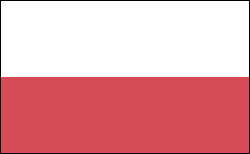- / Countries of the World
- / history
Poland History

Index
A "People's Democracy"
A new constitution in 1952 made Poland a “people's democracy” of the Soviet type. In 1955, Poland became a member of the Warsaw Treaty Organization, with its foreign policy identical to that of the USSR. The government undertook persecution of the Roman Catholic Church as a remaining source of opposition. Wladyslaw Gomulka was elected leader of the United Workers (Communist) Party in 1956. He denounced the Stalinist terror, ousted many Stalinists, and improved relations with the church. Most collective farms were dissolved, and the press became freer. A strike that began in shipyards and spread to other industries in Aug. 1980 produced a stunning victory for workers when the economically hard-pressed government accepted for the first time in a Marxist state the right of workers to organize in independent unions.
Led by Solidarity, an independent union founded by an electrician, Lech Walesa, workers launched a drive for liberty and improved conditions. A national strike for a five-day workweek in Jan. 1981 led to the dismissal of Prime Minister Pinkowski and the naming of the fourth prime minister in less than a year, Gen. Wojciech Jaruzelski. Martial law was declared on Dec. 13, when Walesa and other Solidarity leaders were arrested, and Solidarity was outlawed. Martial law formally ended in 1984 but the government retained emergency powers. Increasing opposition to the government because of the failing economy led to a new wave of strikes in 1988. Unable to quell the dissent entirely, the government relegalized Solidarity and allowed it to compete in elections.
Solidarity members won a stunning victory in 1989, taking almost all the seats in the Senate and all of the 169 seats they were allowed to contest in the Sejm. This gave them substantial influence in the new government. Tadeusz Mazowiecki was appointed prime minister. Lech Walesa won the presidential election of 1990 with 74% of the vote. In 1991, the first fully free parliamentary election since World War II resulted in representation for 29 political parties. Efforts to turn Poland into a market economy, however, led to economic difficulties and widespread discontent. In the second democratic parliamentary election of Sept. 1993, voters returned power to ex-Communists and their allies. Solidarity's popularity and influence continued to wane. In 1995, Aleksander Kwasniewski, leader of the successor to the Communist Party, the Democratic Left, won the presidency over Walesa in a landslide.
In 1999, Poland became part of NATO, along with the Czech Republic and Hungary.
